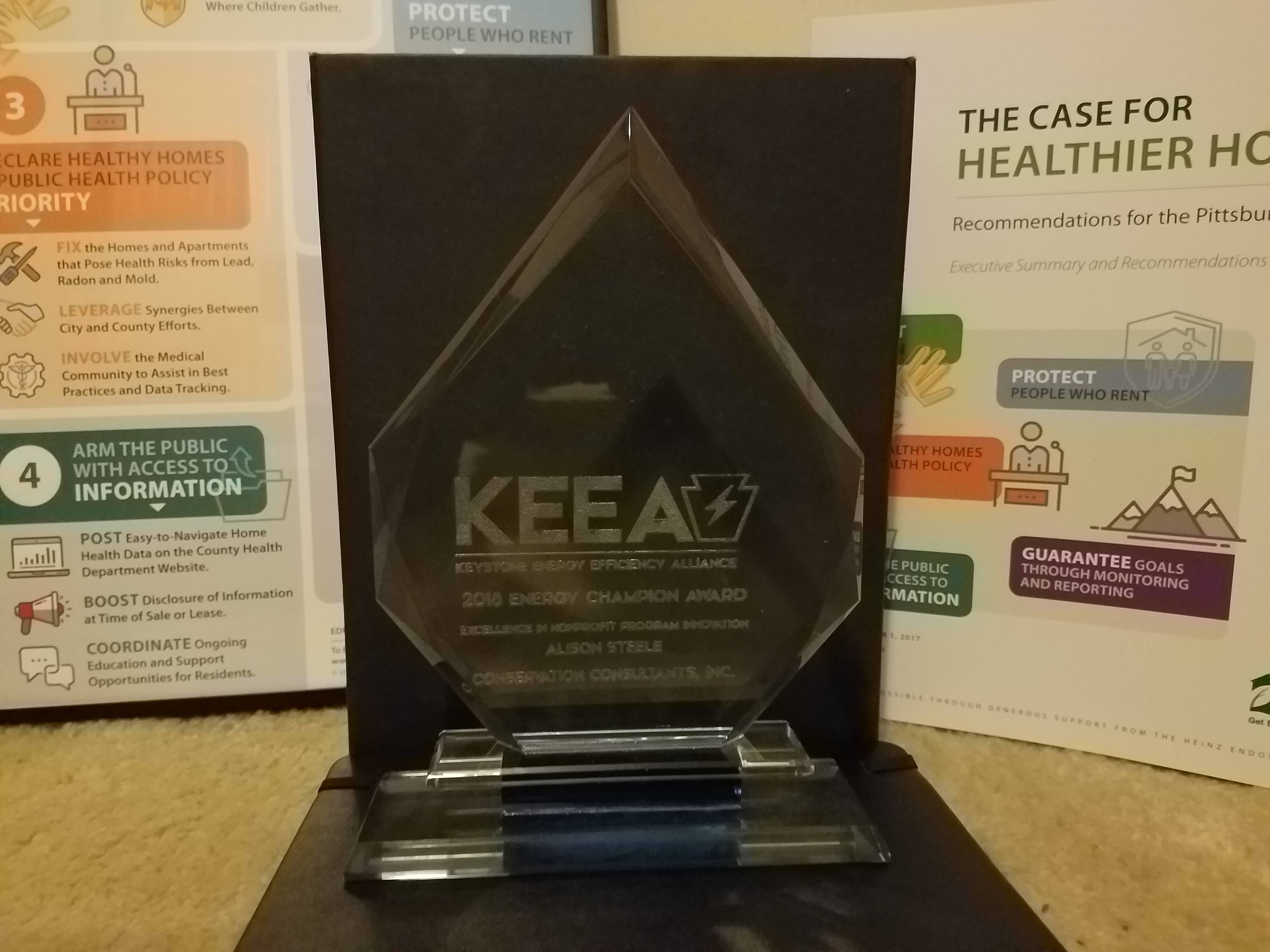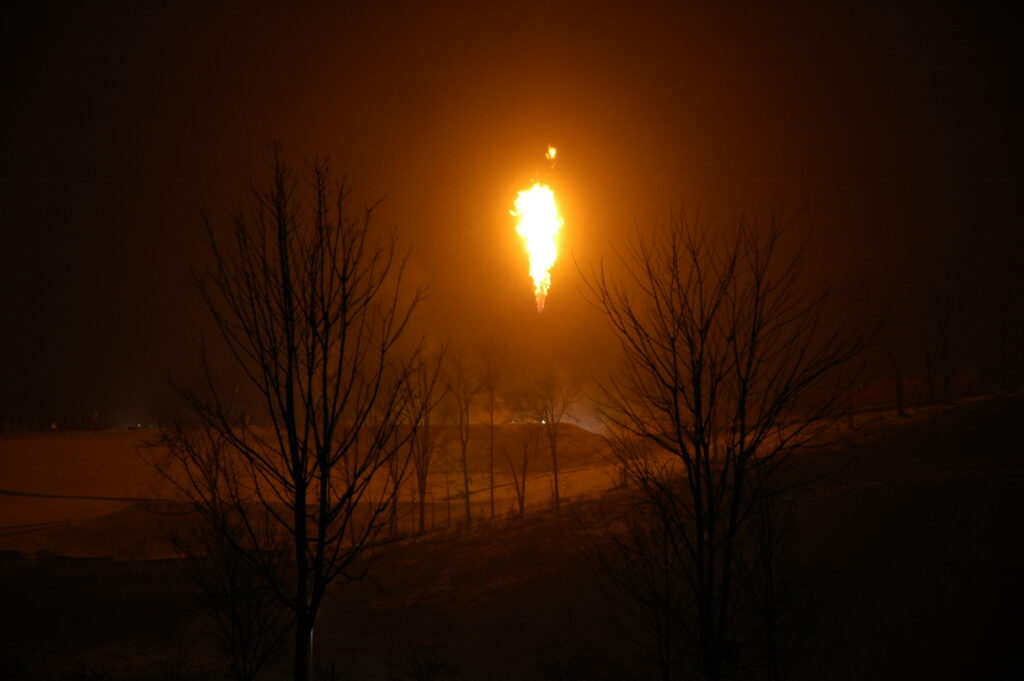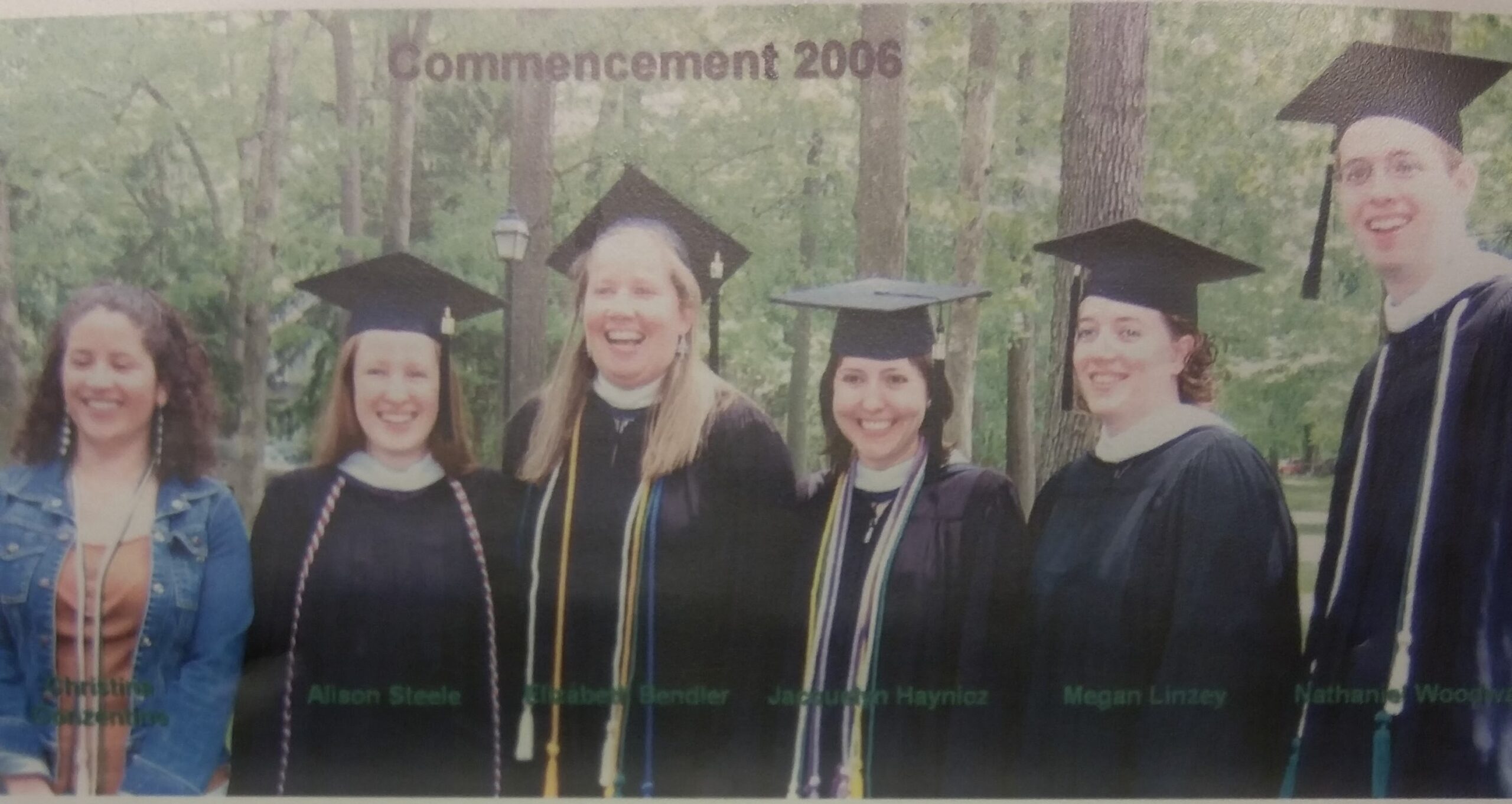When we last left our hero, she had returned to the US weeks before the economic crash of 2008 and was working as a temp and a waitress because it’s hard to get a job with just a bachelor’s degree in physics…
You Can Get a Degree in That?
Looking at graduate programs that might fit the bill for non-profit management, I found an MBA program at Duquesne University that focused on Sustainability. I had no idea that there was a term for one of the guiding principles of my life, let alone an entire field of study devoted to it. As it happened, my physics degree and my time working abroad made me an incredibly attractive applicant to a program that examined, among other things, energy resources in a global economy.
It was also during my time in grad school that Fukushima became a household name. I had just gotten back from Germany, where my class met with energy company RWE about the reliability of their electricity grid and breakdown of their energy sources; I was starting a student consulting project with Westinghouse Electric to calculate the total historic offset of greenhouse gas emissions achieved by their global fleet of nuclear reactors. The nuclear industry was experiencing a renaissance, and I had an unexpected glut of physics-related coursework that seemed tailored to my background… and then the unthinkable happened, starting with a 9.0 earthquake off the coast of Fukushima.

Thankfully my friends and Japanese family were all safe, but many were not so lucky. The terror of March 11, 2011 has had ripples across the world, and the nuclear industry has been in a state of decline since then, with concerns about “another Fukushima.” Despite the fact that nuclear is still the safest form of energy (fewest deaths per Terawatt produced, including modeled cancer rates after Chernobyl and Fukushima), more countries (Japan and Germany most notably) are reducing or cutting their reliance on it.
When I graduated with my MBA, I stuck with energy as a career path. With nuclear in decline, something else would need to take its place. My first job out of grad school was with an organization that calculated savings for companies doing energy efficiency projects. It is true that the cheapest, cleanest kilowatt is the one that isn’t used in the first place, so the real goal was to help clients use less overall.
Following Passion to Purpose
From there, I moved to a nonprofit organization that focused on residential energy efficiency. While I knew that helping multi-national big-box stores save energy ultimately helped the environment, I was much more fulfilled by using those same skills to assist low-income families, who sometimes have to choose between paying an electricity bill and putting food on the table. My work involved designing and managing a program to combine professional weatherization services (e.g. air sealing and insulation) with resident behavior modifications (e.g. setting back the thermostat, turning off the lights, regularly changing the furnace filter, etc.) to save energy. I calculated those energy savings and combined them with policy research to spur action around healthy, energy-efficient homes and social equity.

Unfortunately, energy efficiency doesn’t get us all the way to saving the planet or the people on it. We still need a safe, clean form of energy for when we do turn on the lights. And, unfortunately, there is still a huge social justice factor when it comes to procuring resources for energy. Where I live in southwest Pennsylvania, our rural communities have experienced hardships related to resource extraction for generations. I took over as executive director at my current job just over a year ago, at the beginning of the pandemic. Once again, my physics degree was extremely attractive during the application process, lending credibility to our data-driven approach to education and advocacy.
Part of our work involves performing air quality monitoring in communities, as well as conducting health surveys with residents to track general wellbeing. On top of that, we consolidate academic studies about adverse health outcomes in proximity to certain types of oil and gas infrastructure. Using all of this information we gather – our own and that from research institutions – we are able to educate various stakeholder groups: residents in frontline communities directly impacted by air, water, noise, and light pollution; grassroots organizing groups who advocate to local officials; policymakers whose job it is to create legislation to protect their constituents; and medical professionals who need current information to inform how they care for their patients.
Forging a Path
I wouldn’t describe much of what I do on a daily basis as being “physics-related,” but looking at it another way, I know that my physics degree supports almost everything I do. Ultimately, having a level of scientific literacy, understanding the scientific process, and being able to contextualize information while being clear about what conclusions we can (and cannot) draw through scientific studies are all vital to my role in supporting the organization.

I’ve heard it said that good bosses hire smart people and get out of their way. If that’s true, it makes me incredibly happy because the best part of my job is working with experts who are passionate about what they do. Collaborating with a range of specialists ensures that I don’t need to have all the answers all the time. I can constantly learn from them, while keeping an eye on the bigger picture and seeing how all of the pieces fit together. In that way, it feels like being back in a classroom as a student: always learning something new and figuring out how to make use of that information.
I recognize that I have been incredibly fortunate and have had invaluable support and guidance from friends, family, teachers, and bosses along the way (and I recognize that not everyone is as lucky as I have been). Part of the reason I have landed where I am is because of that support, but part of it is also – I believe – because I have stayed open to new experiences and flexible at forks in the road. For example, I went to Japan with the goal of getting teaching experience, but at the same time I organically learned about aspects of sustainability that were fundamentally different in Japan than they are in the US. While I figured out that I didn’t want to be a teacher in a formal sense, I knew I still wanted to incorporate the opportunity to educate others into my work.
When I was trying to figure out what to do with my physics degree, I knew there had to be other ways to make an impact outside of working in a lab or a classroom. By following my passions, I arrived at (or created) something that was meaningful to me. I didn’t want to work in a lab, but I made a neighborhood my lab as we explored different approaches to residential energy savings. I didn’t want to work in a classroom, but I can make a community meeting or a politician’s office my classroom as we educate people about responsible decisions around energy production.

Looking back to the terrible joke I shared at the beginning of my talk, I find it amusing that I seem to have created a career in physics for myself that includes research, and teaching, and management. While I wasn’t a bad student in college, I wasn’t a stellar one either. I recognize now that I could have put in more effort to raise my grades, but that would have come at the expense of my other interests, and I wanted to learn a little piece of everything and pull it all into a larger vision. The path I’ve walked from physics, to Japan, to energy efficiency, to public health probably looks random from the outside, but every step has been meaningful for me, and each built toward the next.
I closed my talk by quoting two of my professors who had some advice for me as I looked ahead to graduation, having no idea what to do with my life:
- My advisor told me that no experience is ever wasted, even if it’s just to find out what you don’t want to do.
- Our department chair told me that nothing is written in stone, and it’s never too late to make a change.
No matter where you are on your path, I wish you the most fulfilling journey in making it your own.
Thank you for reading and best of luck!
0 Comments